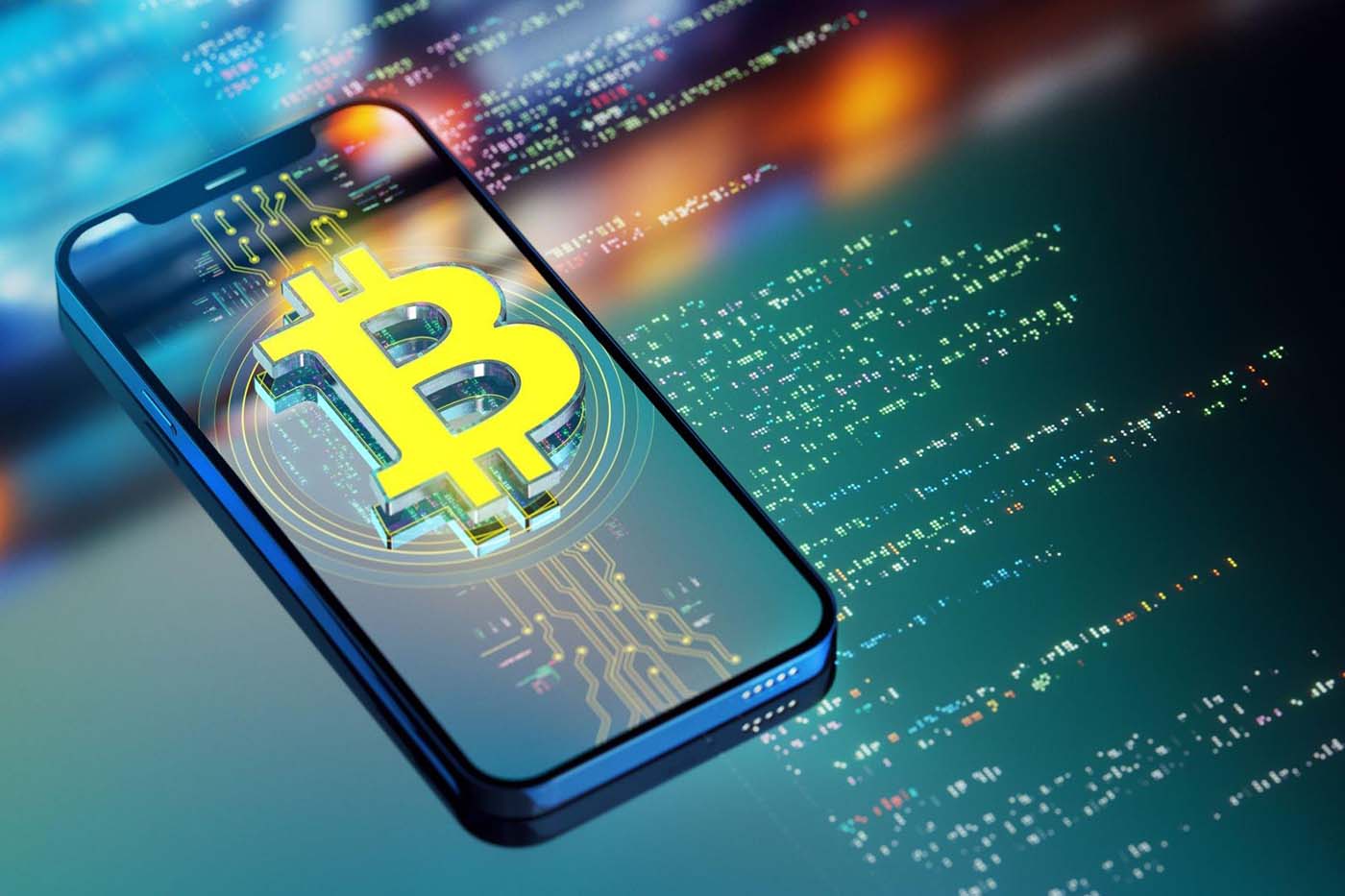In recent years, Bitcoin has emerged as a force to be reckoned with in the world of cryptocurrencies. With its decentralized nature and robust security features, Bitcoin has become the backbone of numerous financial platforms, including the rapidly growing decentralized finance (DeFi) landscape. In this article, we will explore the potential of Bitcoin in the DeFi space and its implications for the future of finance.

Understanding the Basics of Bitcoin and DeFi
Before we delve into the intersection of Bitcoin and DeFi, let’s first understand the fundamentals of these two concepts.
Bitcoin, created in 2009 by an individual or group known as Satoshi Nakamoto, is a digital currency based on Blockchain technology. It operates on a peer-to-peer network and enables secure, transparent, and immutable transactions.
Bitcoin has gained significant popularity over the years due to its decentralized nature and the potential it offers for financial freedom. Unlike traditional fiat currencies, Bitcoin is not controlled by any central authority, such as a government or a central bank. Instead, it relies on a network of computers, known as miners, to verify and validate transactions.
The underlying technology behind Bitcoin is the blockchain, which is a distributed ledger that records all transactions in a transparent and secure manner. Each transaction is grouped into a block and added to the chain, creating a permanent record of all Bitcoin transactions.
Bitcoin has become a store of value for many individuals and has even been referred to as “digital gold.” Its limited supply, with a maximum of 21 million coins, has contributed to its scarcity and value. Bitcoin can be bought, sold, and traded on various cryptocurrency exchanges, making it accessible to anyone with an internet connection.
Introduction to DeFi (Decentralized Finance)
DeFi refers to a financial system built on decentralized blockchain networks that eliminates intermediaries and provides access to financial services to anyone with an internet connection. It encompasses a wide range of applications, including lending, borrowing, trading, and more.
One of the key features of DeFi is the use of smart contracts, which are self-executing contracts with the terms of the agreement directly written into code. These smart contracts automate processes and remove the need for intermediaries, such as banks or brokers, reducing costs and increasing efficiency.
DeFi platforms allow users to lend or borrow digital assets, participate in decentralized exchanges, and earn interest on their holdings. These platforms are typically built on open-source protocols, enabling anyone to access and use them.
The rise of DeFi has opened up new opportunities for individuals to participate in the global financial system, regardless of their location or socioeconomic status. It has the potential to democratize finance and provide financial services to the unbanked or underbanked populations.
However, it is important to note that DeFi is still a relatively new and rapidly evolving space. While it offers exciting possibilities, it also comes with risks, such as smart contract vulnerabilities, regulatory uncertainties, and market volatility.
As the intersection of Bitcoin and DeFi continues to evolve, we can expect to see innovative solutions that leverage the strengths of both technologies. This intersection has the potential to revolutionize the financial industry by offering decentralized, transparent, and inclusive financial services to individuals around the world.
The Intersection of Bitcoin and DeFi
In the dynamic world of Decentralized Finance (DeFi), where Bitcoin is carving out a substantial role, the application of advanced technologies like Immediate Edge is becoming pivotal. By leveraging Immediate Edge’s cutting-edge algorithms for real-time market analysis and predictions, participants in the DeFi space can enhance their strategies and decision-making processes. To join the Immediate Edge revolution is to embrace a future where technology and decentralized finance converge, unlocking new possibilities in the world of Bitcoin and beyond.
Bitcoin and DeFi are two powerful concepts that complement each other in various ways. Let’s explore how Bitcoin fits into the DeFi ecosystem and the role it plays in facilitating transactions.
How Bitcoin Fits into the DeFi Ecosystem
Bitcoin serves as a foundational layer for many DeFi protocols and applications. Its decentralized nature and robust security make it an ideal asset to be used as collateral or for liquidity provision in DeFi platforms.
One of the key ways Bitcoin fits into the DeFi ecosystem is through its role as a store of value. Bitcoin’s scarcity and proven track record as a digital asset have made it a popular choice for individuals looking to preserve their wealth. This makes it an attractive option for DeFi platforms that require collateral to secure loans or provide liquidity.
Additionally, Bitcoin’s widespread adoption and recognition as the first cryptocurrency have led to the development of various financial instruments that allow users to gain exposure to Bitcoin’s price movements within the DeFi space. This includes Bitcoin-backed stablecoins, which are pegged to the value of Bitcoin and provide users with a way to hold a stable digital asset while still benefiting from Bitcoin’s potential upside.
The Role of Bitcoin in DeFi Transactions
Bitcoin enables trustless and permissionless transactions in the DeFi space. It allows users to bypass traditional financial intermediaries, such as banks, and engage in peer-to-peer transactions with full control over their funds.
One of the key advantages of using Bitcoin in DeFi transactions is its ability to provide financial services to individuals who may not have access to traditional banking services. Bitcoin’s borderless nature allows anyone with an internet connection to participate in the global financial system, regardless of their location or financial status.
Moreover, Bitcoin’s transparency and immutability provide a high level of security and accountability in DeFi transactions. Every Bitcoin transaction is recorded on the blockchain, making it easy to trace and verify the movement of funds. This eliminates the need for intermediaries to vouch for the authenticity of transactions, reducing the risk of fraud or manipulation.
Furthermore, Bitcoin’s decentralized nature ensures that no single entity has control over the network, making it resistant to censorship and interference. This gives users the freedom to transact and interact with DeFi platforms without worrying about external influences or restrictions.
In conclusion, Bitcoin plays a crucial role in the DeFi ecosystem by providing a secure and transparent means of value transfer, serving as collateral, and enabling trustless and permissionless transactions. As the DeFi space continues to evolve, Bitcoin’s integration and utilization are expected to grow, further strengthening the intersection between Bitcoin and DeFi.

The Advantages of Bitcoin in DeFi
Bitcoin offers several advantages that make it an attractive asset for DeFi participants. Let’s explore some of these advantages.
Security and Transparency
Bitcoin’s decentralized nature and robust cryptographic algorithms make it highly secure and resistant to fraud. Additionally, as all Bitcoin transactions are recorded on the blockchain, they are transparent and can be audited by anyone.
Accessibility and Inclusion
Bitcoin’s open and permissionless network allows anyone with an internet connection to participate in the DeFi ecosystem. This inclusivity enables financial services to reach individuals who do not have access to traditional banking services.
Potential for High Returns
Bitcoin’s limited supply and increasing demand have made it a highly sought-after asset, resulting in significant price appreciation over time. This price volatility presents opportunities for investors to generate high returns in the DeFi space.
Challenges and Risks of Bitcoin in DeFi
Despite its numerous advantages, Bitcoin’s integration into the DeFi landscape also brings certain challenges and risks. Let’s explore some of these potential drawbacks.
Volatility of Bitcoin
Bitcoin’s price is highly volatile, which can lead to substantial gains or losses for DeFi participants. This volatility introduces additional risk and requires participants to carefully manage their exposure to Bitcoin.
Regulatory and Legal Risks
The regulatory landscape surrounding cryptocurrencies, including Bitcoin, is evolving rapidly. DeFi platforms that integrate Bitcoin may face legal and compliance challenges as they navigate through different jurisdictions.
Technological Challenges
Bitcoin’s scalability and transaction speed limitations present technical challenges for its integration into DeFi platforms. Efforts are being made to address these limitations, but they remain an ongoing concern.
Case Studies of Bitcoin in DeFi
Let’s examine some real-world examples of how Bitcoin is being utilized in various DeFi applications.
Bitcoin in Peer-to-Peer Lending Platforms
Peer-to-peer lending platforms leverage Bitcoin as collateral to provide loans without the need for traditional financial intermediaries. This enables borrowers to access funds quickly and efficiently.
Bitcoin in Decentralized Exchanges
Decentralized exchanges (DEXs) facilitate the trading of Bitcoin and other cryptocurrencies without the need for central authorities. DEXs are powered by blockchain technology, enabling users to trade assets directly with other participants, ensuring transparency and security.
In conclusion, Bitcoin holds immense potential in the DeFi landscape. Its decentralized nature, robust security, and wide adoption make it an ideal asset for transparent, accessible, and inclusive financial services. While challenges and risks exist, ongoing innovation and collaboration within the DeFi space will continue to unlock new possibilities for Bitcoin and reshape the future of finance.








